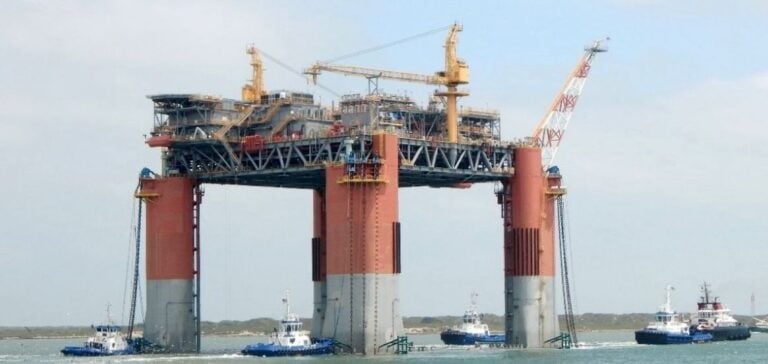LLOG Exploration Company (LLOG), a major player in deepwater oil exploration, is making progress on its Salamanca project in the Gulf of Mexico. The company is transforming a decommissioned production unit into a modern floating platform, optimizing production timelines and costs while enhancing local capacity.
A project rooted in the Gulf of Mexico
At the heart of this project is a unit capable of processing up to 60,000 barrels of oil and 40 million cubic feet of natural gas daily. The refurbishment of the hull was completed at Seatrium, Texas, and delivered in October 2024 to Kiewit’s shipyard in Ingleside, where the new platform was integrated. LLOG plans to begin production by mid-2025, marking a critical milestone in addressing the growing energy needs of the United States.
Strategic development of the Leon and Castile fields
The Salamanca platform is supported by wells drilled in the Leon and Castile fields, operated by LLOG in partnership with Repsol and O.G. Oil & Gas. The last well, drilled in September 2024 in the Leon field (Keathley Canyon 686 #4), exceeded expectations by uncovering more than 1,000 feet of oil-rich sands.
Since 2019, LLOG has strengthened its position in these fields, accelerating their exploitation to maximize the project’s profitability. These strategic developments reflect a pragmatic approach to a constantly evolving oil market.
A local and economic contribution
Unlike many outsourced projects, construction was carried out primarily in the United States, across shipyards in Louisiana and Texas. This decision underscores a commitment to bolstering the local economy while reducing logistical and operational costs.
The Salamanca project also highlights a trend of reusing existing infrastructure, promoting a more sustainable business model while aligning with the strategic priorities of the energy sector.





















